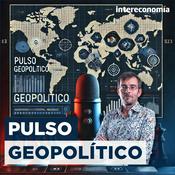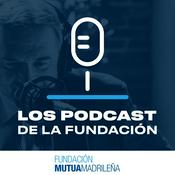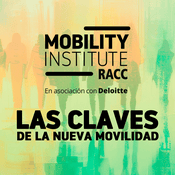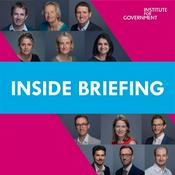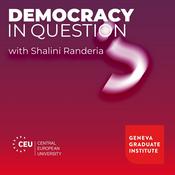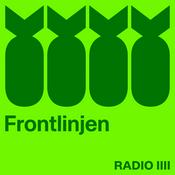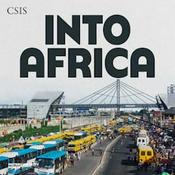163 episodios
- In this episode of In Pursuit of Development, Dan Banik speaks with Yale historian David Engerman about how “development” became one of the most powerful and contested ideas of the modern era. Drawing on Engerman’s 2025 book Apostles of Development: Six Economists and the World They Made, the conversation follows six influential South Asian economists and policymakers, Amartya Sen, Jagdish Bhagwati, Manmohan Singh, Mahbub ul Haq, Rehman Sobhan, and Lal Jayawardene, from Cambridge classrooms to planning commissions and global institutions. Along the way, they unpack the enduring arguments that still shape policy today: poverty versus inequality, markets versus states, trade versus protection, and expertise versus politics. The episode also explores how ideas associated with human development emerged, why “the Global South” became a category with political force, and what these intellectual friendships and rivalries reveal about the promises and tensions inside the development project.
Host:
Dan Banik
LinkedIn
X: @danbanik @GlobalDevPod
Subscribe:
Apple Spotify YouTube
https://in-pursuit-of-development.simplecast.com - This episode of In Pursuit of Development explores how AI is reshaping the way development organizations learn from evidence, unlocking lessons buried in evaluations and reports, and helping practitioners make better decisions in complex, fast-moving settings. Dan Banik speaks with Lindsey Moore, CEO and Founder of DevelopMetrics, about how ethical AI and predictive analytics can make development evidence genuinely usable — turning decades of evaluations into structured, searchable insight for better decisions.
Lindsey draws on her experience in USAID and her work building domain-trained models to explain why the sector’s challenge is not an evidence shortage, but rather an evidence usability gap. Together Lindsey and Dan discuss what it takes to build context-aware systems: transparent taxonomies, careful human labeling, and models grounded in local perspectives rather than default assumptions embedded in general-purpose AI.
The conversation also explores how large-scale evaluation archives can be transformed into institutional memory, strengthening professional judgment and helping organizations learn faster, reduce waste, and target interventions more precisely.
In this episode:
AI for global development beyond hype: What actually works in practice.
Why definitions and taxonomies shape results (and power).
How to reduce bias and improve context in development AI.
Evidence infrastructure, knowledge management, and decision workflows.
Resources:
When USAID Shut Down, Its Lessons Nearly Vanished. AI Helped Recover Them (Stanford Social Innovation Review, December 2025)
Integrating human-centered AI for land use policy: Insights from agricultural interventions in international development (Land Use Policy, 2025)
Host:
Dan Banik
LinkedIn
X: @danbanik @GlobalDevPod
Subscribe:
Apple Spotify YouTube
https://in-pursuit-of-development.simplecast.com - Vietnam is often held up as one of the world’s standout development success stories—rapid growth, dramatic poverty reduction, and a transformation from low-income to middle-income status within a single generation. But what happens when success starts to produce new tensions: rising inequality, changing public services, mounting pollution, and a consumption boom that reshapes everyday life?
Dan Banik is joined by Arve Hansen, Research Professor at the University of Oslo’s Centre for Global Sustainability and author of Consumption and Vietnam’s New Middle Classes: Societal Transformations and Everyday Life (2022, Palgrave). Together, they explore Vietnam’s development model after Đổi Mới and the paradox of an officially socialist, one-party state delivering a globally integrated “market economy with a socialist orientation.”
Rather than staying at the level of GDP and policy slogans, the conversation moves into the lived experience of development: mobility and the motorbike society, the rising status of car ownership, urban change, air quality, and how shifting diets and “meatification” reflect new middle-class aspirations. Dan and Arve also discuss Vietnam’s push for greener growth and electrification, the politics of land and infrastructure, and why sustainability transitions can become socially and politically sensitive.
Finally, the episode situates Vietnam in today’s unstable global economy (e.g., trade shifts, geopolitics, and growing pressure to diversify) while asking what the next phase of development could look like as Vietnam tries to avoid the middle-income trap and sustain progress in a warming world.
Host:
Dan Banik
LinkedIn
X: @danbanik @GlobalDevPod
Subscribe:
Apple Spotify YouTube
https://in-pursuit-of-development.simplecast.com - Electricity is often treated as a basic development milestone. But in large parts of the African continent, the deeper challenge is not only connecting people to the grid, but ensuring power is affordable and reliable enough to support jobs, industrialization, and economic transformation. This episode explores what energy poverty really means, why progress is uneven across regions, and what it would take to move from “first access” to true “energy for growth.”
Todd Moss is founder and executive director of the Energy for Growth Hub. He is a widely recognized expert on energy, development finance, and foreign policy and writes the popular Substack Eat More Electrons. Todd previously served as U.S. Deputy Assistant Secretary of State for African Affairs.
The conversation begins with a critical distinction: electricity “access” can mask a much larger problem of unreliable supply. Todd argues that billions of people live with power that exists on paper but fails in practice as outages, high tariffs, and weak grids erode the benefits electrification is supposed to deliver. From there, Todd and Dan unpack the persistent tension between household electrification and powering firms. Dan raises the moral and political case for universal household access, while Todd makes the argument that job creation requires a different kind of electricity (dense, dependable, and scaled for industry) alongside the off-grid solutions that can improve welfare quickly.
They then turn to policy and investment. Why do so many countries remain stuck with utilities that are not creditworthy? What makes large generation projects “bankable,” and why do credible offtakers and guarantees matter so much? Todd explains how renewed global interest in critical minerals could become an anchor for bigger energy systems, especially if governments negotiate strategically and use mining and processing to unlock broader infrastructure that supports non-mining sectors too.
The episode also widens out to geopolitics and development finance, including what is changing in Washington and what new tools (particularly U.S. development finance) might mean for energy investment going forward. Finally, Dan and Todd tackle nuclear power: why it remains controversial, why new small modular designs are changing the conversation, and what the long-term geopolitical risks look like when nuclear fuel and technology can tie countries into decades-long dependencies.
Resources:
Eat More Electrons Substack
Energy for Growth Hub website
Global Market for Advanced Nuclear Map
Who in Africa is Ready for Nuclear Power?
PPA Watch
Host:
Dan Banik
LinkedIn
X: @danbanik @GlobalDevPod
Subscribe:
Apple Spotify YouTube
https://in-pursuit-of-development.simplecast.com - As the year comes to a close, this special year-end episode of In Pursuit of Development offers a reflective look back at the conversations that have shaped Season 6 so far. Host Dan Banik brings together the main ideas, debates, and tensions explored across the season, drawing connections between discussions on the rise of the Global South, shifting power in a multipolar world, democratic resilience, and the growing strain on multilateral institutions.
The episode revisits how development thinking is being challenged by shrinking aid budgets, climate change, energy insecurity, and widening global inequalities, while also exploring the promises and risks of new technologies such as artificial intelligence. Throughout the reflection, Dan emphasizes the importance of human development, accountability, and solidarity in an increasingly complex global landscape.
Looking ahead, the episode outlines key themes the podcast will tackle in the new year, including energy promotion and energy security, the intellectual foundations of development thinking, consumption and development linkages, the role of activism, AI and development, and a journalist’s perspective on global development. This episode is both a guide for listeners who want to catch up on Season 6 and an invitation to join the ongoing conversation about where global development is headed next.
Host:
Dan Banik
LinkedIn
X: @danbanik @GlobalDevPod
Subscribe:
Apple Spotify YouTube
https://in-pursuit-of-development.simplecast.com
Más podcasts de Gobierno
Podcasts a la moda de Gobierno
Acerca de In Pursuit of Development
Step into conversations that travel across continents and challenge the way you think about progress. From democracy and inequality to climate resilience and healthcare, Dan Banik explores how societies navigate the complex terrain of democracy, poverty, inequality, and sustainability. Through dialogues with scholars, leaders, and innovators, In Pursuit of Development uncovers how ideas travel, why policies succeed or fail, and what it takes to build a more just and resilient world. Expect sharp insights, candid reflections, and a global perspective that connects local struggles to universal aspirations.
Listen, reflect, and be inspired to see global development in a new light. 🎧
Sitio web del podcastEscucha In Pursuit of Development, GORKA ZUMETA y muchos más podcasts de todo el mundo con la aplicación de radio.es
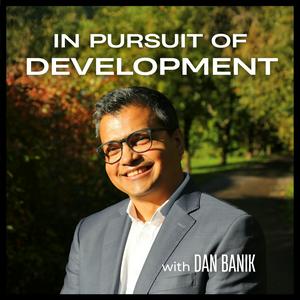
Descarga la app gratuita: radio.es
- Añadir radios y podcasts a favoritos
- Transmisión por Wi-Fi y Bluetooth
- Carplay & Android Auto compatible
- Muchas otras funciones de la app
Descarga la app gratuita: radio.es
- Añadir radios y podcasts a favoritos
- Transmisión por Wi-Fi y Bluetooth
- Carplay & Android Auto compatible
- Muchas otras funciones de la app


In Pursuit of Development
Escanea el código,
Descarga la app,
Escucha.
Descarga la app,
Escucha.




